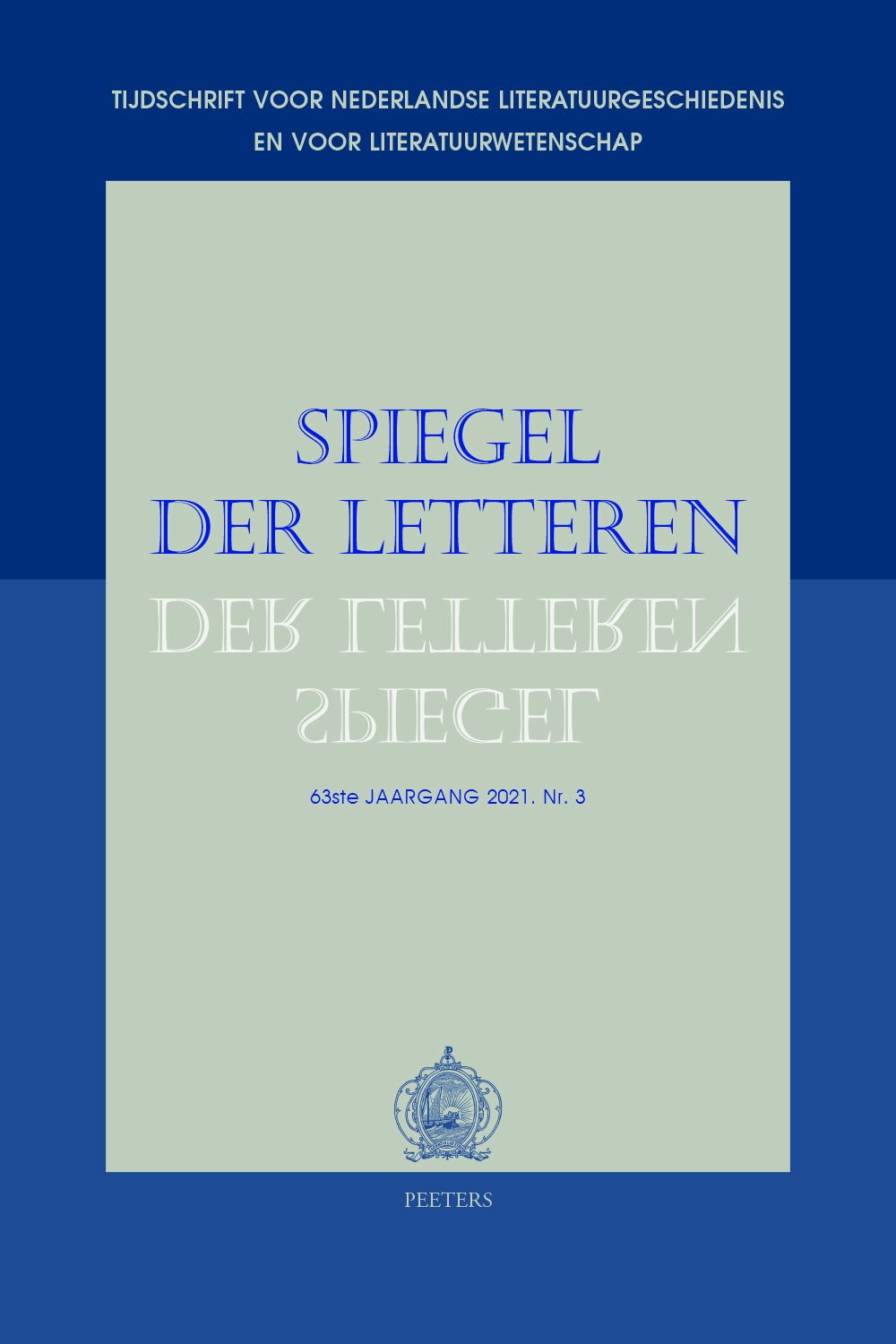 previous article in this issue previous article in this issue | next article in this issue  |

Preview first page |
Document Details : Title: Bestaat Osewoudt? Subtitle: Literatuur en filosofie in De donkere kamer van Damokles van W.F. Hermans Author(s): VAN STEENWIJK, Karel Journal: Spiegel der Letteren Volume: 55 Issue: 4 Date: 2013 Pages: 493-521 DOI: 10.2143/SDL.55.4.2999874 Abstract : This analysis focusses on the novel’s symbolism and not, as in most other approaches, on its realistic-psychological aspect. It reveals a philosophical theme, arguing that the novel examines the possibility, or impossibility, of a rational ethic as developed by Kant. Kant regards man as a citizen of two worlds, that of nature and that of freedom. In my analysis Osewoudt and Dorbeck personify these two aspects. Thus the failure in the novel to find conclusive evidence for the existence of Dorbeck can be interpreted as criticizing Kantian philosophy. As the story develops, Kant’s assumption that there is a rational connection between nature (facts) and freedom (values) proves to be an overoptimistic piece of fiction. In our secularized world Osewoudt can no longer rely on the Kantian principle of transcendental regulation (Dorbeck). He fails to find a way out, however, and holds on to his course of action to the very end, which gives the novel the structure of a classical tragedy. |
|


